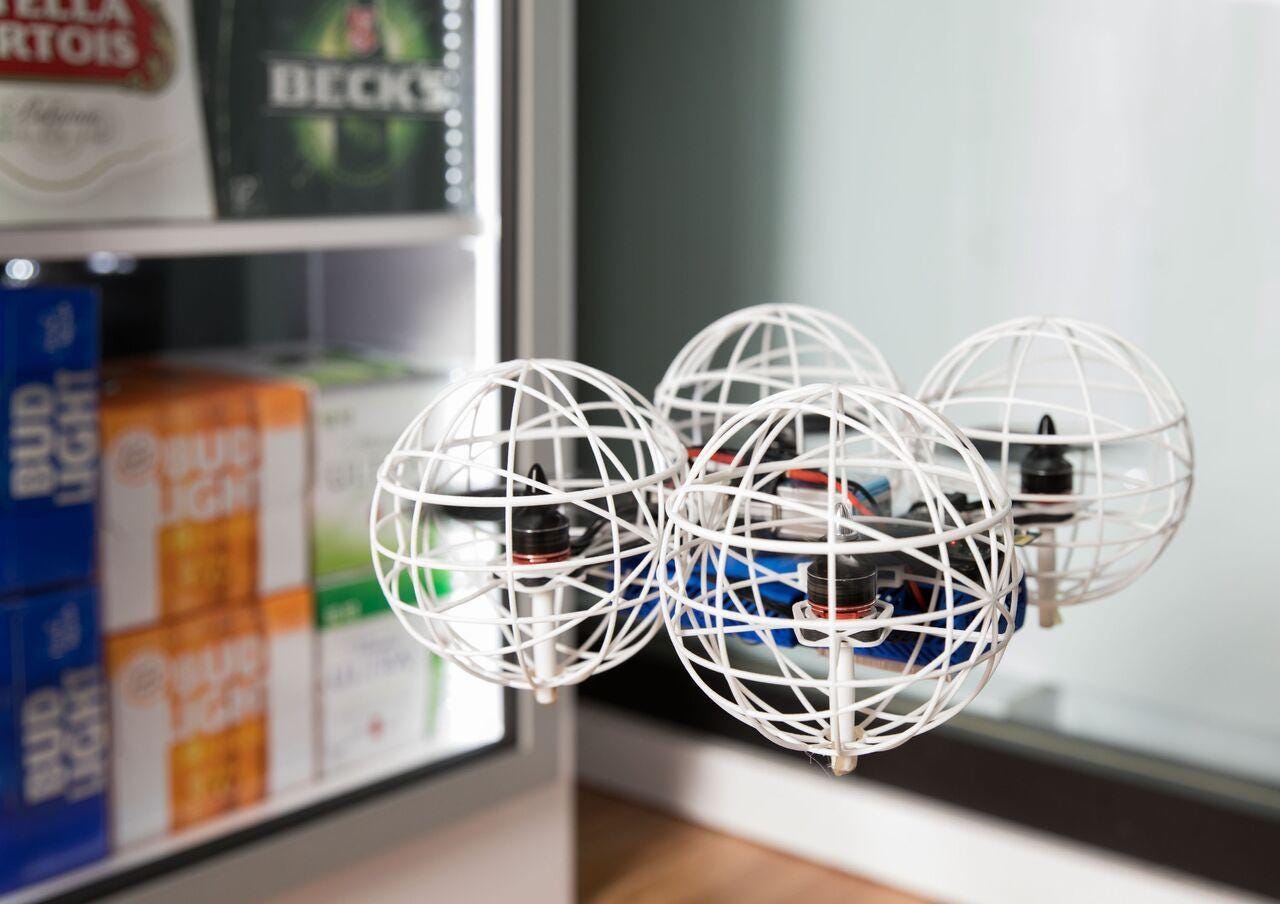Quickdraw: Flying robot scans shelves faster than clerks, ground robots


Pensa, a company that makes an autonomous mobile perception system to track inventory in stores, has $5 million in additional funding after a newly-announced round. With a total funding of more than $7 million, Pensa is now a contender in a tightening race to build the ultimate autonomous shelf-scanning system for brick-and-mortar retail.
Other companies in the space include Simbe and Bossa Nova, which make shelf-scanning robots that can be deployed to work safely alongside customers as they scan shelves and track inventory. The robots roam stores and quickly scan merchandise on shelves using machine vision or RFID readers, helping retailers keep track of inventory more efficiently than employees with scanning guns.
Inventory management is a bigger problem than you might think, potentially leading to billions of dollars of lost revenue.
"Retailers and manufacturers go blind staring at products on the shelf to see what is missing or has been misplaced," says Pensa President & CEO Richard Schwartz. "Advanced artificial intelligence can borrow the best of how people perceive shelf conditions and automate it at scale to continuously read out what is on a shelf at any point in time."
But the real advantage of these robots goes beyond inventory and into the realm of big data. By analyzing massive amounts of data about how inventory is moving, retailers can potentially gain e-commerce level insights into customer behavior and product trends. In that way, shelf-scanning systems are one way physical retailers hope to level the playing field with Amazon.
Unlike its competitors, which utilize ground-based robots, Pensa is using aerial drones to move its visual perception platform around store aisles. One advantage of drones is that they're far less expensive to customize and deploy than it would be to develop an autonomous mobile robot from scratch. Pensa's drones utilize brace cages around the propellers and look a bit like flying science fair projects.
Another advantage with drones is speed. UAVs can whip around a store much faster than ground robots. Pensa's machine vision is incredibly accurate. In a recent trial at a brick-and-mortar store in Montreal with partner Anheuser-Busch InBev, a strategic investor, the Austin-based company's flying robots were able to collect hourly and daily data and identify out of stock items 98 percent of the time.
Drones have potential disadvantages, as well, including potential issues of noise and customer comfort, but a Pensa representative explained to me via email that the company's system largely mitigated those concerns:
The drone is pretty small, light and quieter than the ambient noise level in typical retail, so it almost fades away. In our live store trials, shoppers were largely oblivious to it if there were 10 feet away. When they noticed they got intrigued. In any case, the drone is perceived as friendly, and the autonomous behavior ensures the drone only goes in areas where there are no people, leaving early or fading up and away if somebody even remotely approach. We have done significant human factors and live store testing with both store employees and shoppers to ensure effective interaction.
So far, competitors Simbe and Bossa Nova have been able to establish valuable strategic partnerships with massive brands. French company Decathlon, the largest sporting goods retailer in the world, is trying out Simbe's Tally robots in its first U.S. store. California-based Bossa Nova, meanwhile, marked a huge win in 2018 when Walmart, the biggest chain retailer in the world, announced it would use the company's robots to keep track of inventory in several locations.
With over $100 million in funding, Bossa Nova is leading the pack in funding.
Still, as brick-and-mortar retail gets off its heels and finds way to optimize operations and increase efficiency in order to compete with ecommerce, the opportunity is massive.
"The global retail industry is at a critical inflection point," Bruce McWilliams, Bossa Nova president and CEO, told ZDNet back in June. "Today's retail powerhouses require accurate, real-time product information to create a seamless omnichannel shopping experience expected by all customers."